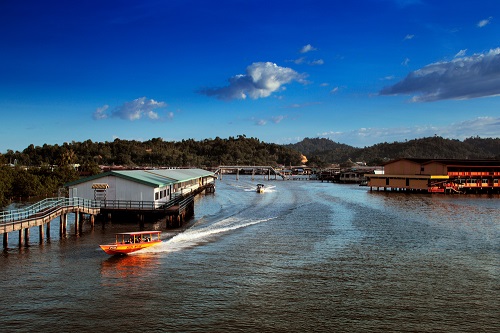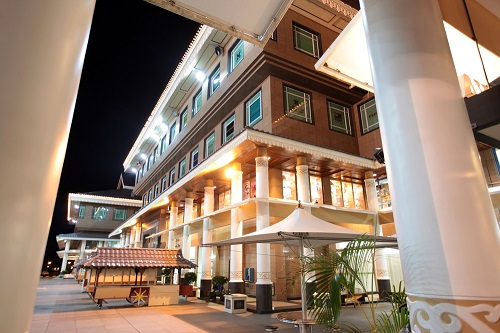Whilst Brunei has a population of over 428,000 people, its actual size isn’t much bigger than a small English county. Therefore, the country isn’t big enough for sophisticated infrastructures or an economy of scale. Nonetheless, it still has plenty going for it, including unspoilt jungle, clean air, good security and a global position that’s convenient for travel.When relocating to a new country, there are a number of considerations to take into account, to ensure that your move is successful. For example, you will need to decide whether to open a new bank account. This article will take you through all you need to know.
How to find a suitable bank
All central banking roles, such as managing Brunei’s currency and implementing financial policy, are performed by the Monetary Authority of Brunei Darussalam (AMBD). Over recent years, the government has sought out new ways to be less financially reliant on gas and petroleum, and one method is through banking. Retail banking (the type for everyday household use) isn’t the most profitable, but it does provide quantity.
It’s recommended that, unless you’re looking to make your relocation permanent, you keep a bank account open in your home country. This is easier for paying bills and making transfers back home. But if you are looking to relocate, it’s best to open a local account in Brunei, as transaction and withdrawal fees from using a foreign bank can all add up.
There are seven banks that are licensed to operate in Brunei. The three major banks are:
• Perbadanan Tabung Amanah Islam Brunei (TAIB)
• Baiduri Bank
• Bank Islam Brunei Darussalam

The following four banks all have international ownership:
• RHB Bank
• Maybank
• Standard Chartered Bank Brunei
• CIMB Brunei
HSBC used to have a presence in the country, but it sold its banking operations to Baiduri Bank in 2017.
Opening an account
Before you open a bank account, it’s worth doing some research in your local area to find out which branches and ATMs are situated closest to your workplace or residence. 24-hour ATMs are found in all urban centres, and the majority are listed on bank websites and maps.
The official currency in Brunei is the Brunei dollar, and because it’s pegged against the Singaporean dollar, you may find that many retailers, cafes, and taxi drivers will also accept the Singaporean dollar without any problems. Mostly, however, people tend to bank and spend in Brunei dollars, which can be accessed from any of the many ATMs in the country.
When it comes to the account type itself, you’ll need to check the terms and conditions to see which offers the most suitable service for you. How you plan to use your account will determine which bank has the best solution for your needs.
The most popular types of accounts are personal current accounts and savings accounts. Each bank will have a few options of each, with varying degrees of charges applicable. For example, accounts tend to have a monthly fee attached to them, but with that, you get different perks, such as not being charged for withdrawals, transfers or transactions for a certain number of uses.
You should always read the terms and conditions before opening an account to ensure you fully understand what usage rights you have and what to expect in terms of fees and/or interest rates.
Banking hours in Brunei vary, as each branch has its own operating hours, but typically they are open between the hours of 9 am and 4 pm Monday to Friday. However, it’s important to note that on Friday afternoons, between the hours 12 am and 2 pm, all businesses will close for prayers, including banks.

What paperwork is needed to open a bank account in Brunei?
To open an account, you will need to visit a local branch. You can start the application process online, but supporting documents must be presented in person. Most bank branches have English-speaking staff, so communication shouldn’t be too much of an issue. Opening a bank account can take some time, so you should always book an appointment, rather than just dropping in.
Once you’ve made your appointment, you will need to compile the following documents to take with you:
• Passport
• Visa
• Rental agreement
• Financial history
• Three months of bank statements
• Employment contract
This may seem overly complicated, but it’s a necessary process, because banks are under a legal obligation to check the identity of those who request to open an account with them. They can be prosecuted if any of their accounts are used for money laundering.

